Nguyen Tuong Family Temple (8/2 lane, Nguyen Thi Minh Khai street, Hoi An) has just celebrated its 10th anniversary of opening to visitors (2013 - 2023). This is a unique relic that not only represents the characteristics of ancient Hoi An architecture but is also a destination for historical and literary stories.
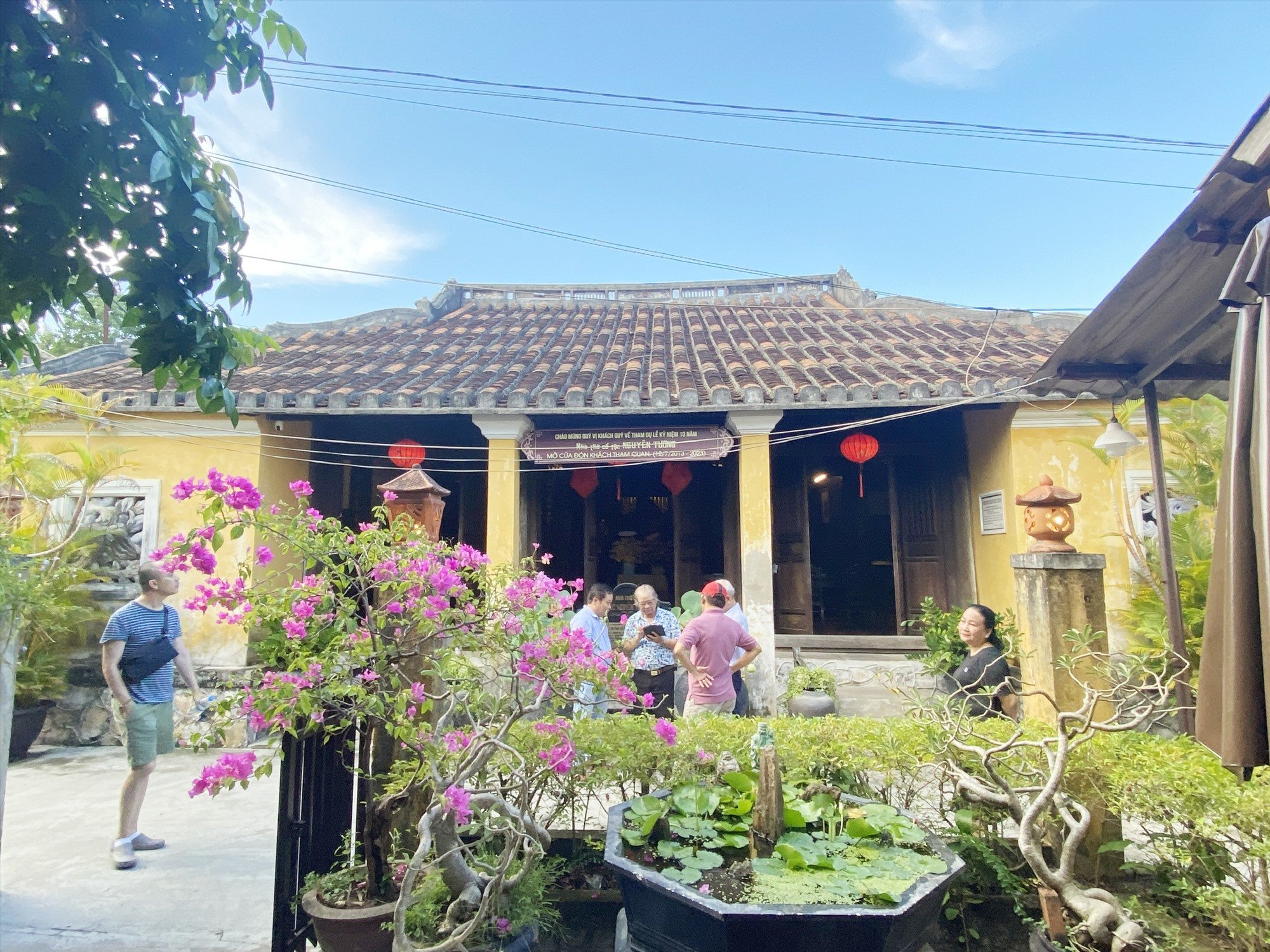
The Nguyen Tuong clan is a famous clan in Quang Nam for its tradition of mandarin examinations with names of high achievements and high-ranking officials under the Nguyen Dynasty. In the early 20th century, the descendants of the Nguyen Tuong clan attracted attention with names in the Vietnamese literary world such as Nguyen Tuong Tam (writer Nhat Linh), Nguyen Tuong Lan (Thach Lam), Nguyen Tuong Long (Hoang Dao). These were the founding and key figures of the Tu Luc Van Doan group, contributing to laying the foundation for modern Vietnamese literature.
Historical site
In addition to the ancient church on Nguyen Thi Minh Khai Street, there is also the Nguyen Tuong clan church located in Tu Le quarter, Cam Pho ward, which is the place to worship Doctor Nguyen Tuong Pho and his descendants, including writers Nhat Linh, Thach Lam, and Hoang Dao.
Nguyen Tuong Pho's son, Nguyen Tuong Tiep (1831 - 1890), passed the Bachelor's exam and in 1874 became a civil servant for Pham Phu Thu.
Nguyen Tuong Tiep had 4 sons, of which the youngest son was Nguyen Tuong Chieu (1880 - 1918, lived in Hai Duong and did not return to his hometown). Mr. Chieu was the father of writers Nhat Linh, Hoang Dao, and Thach Lam.
The Nguyen Tuong clan temple in Tu Le quarter still preserves many valuable documents and relics associated with Dr. Nguyen Tuong Pho such as compositions, copies, and collections of poems, wills, parallel sentences, invitations to spring ceremonies, funeral orations, draft stele inscriptions, and rituals.
There are also many artifacts and documents of the descendants of the three writers Nhat Linh, Hoang Dao, and Thach Lam in the Tu Luc Van Doan group.
Nguyen Tuong clan temple was built in 1806, originally the private residence of Minister of War Nguyen Tuong Van (1774 - 1822), founding father of the Nguyen dynasty.
Mr. Nguyen Tuong Van had three children, the eldest son was Nguyen Tuong Vinh, who passed the first Pho Bang exam in the year of Mau Tuat (1838) and was appointed to many court positions. The second son Nguyen Tuong Khuon was the son-in-law of the famous general Le Chat. The third son was Nguyen Tuong Pho, who passed the third class of the same degree as a Doctor in the year of Nham Dan (1842).
The three key writers of the Tu Luc Van Doan group were Nguyen Tuong Tam, Nguyen Tuong Long, and Nguyen Tuong Lan, the great-grandchildren of Dr. Nguyen Tuong Pho.
At the Nguyen Tuong clan temple, there are still many Han Nom documents dating from the 18th - 20th centuries that fully describe the career path of Minister of War Nguyen Tuong Van as well as historical documents on the academic achievements of his children such as Pho Bang Nguyen Tuong Vinh, Doctor Nguyen Tuong Pho... or the royal decrees and titles of the kings Gia Long, Minh Mang, Thieu Tri, Tu Duc, Thanh Thai promoting people in this clan.
According to the Hoi An Center for Cultural Heritage Management and Preservation, the Han Nom documents and texts at the Nguyen Tuong family temple are not only preserved and conserved as a heritage value of the famous scholar-grooming family but also as evidence that truly reflects the history, culture and society of a period, thereby conveying the interweaving values between the past and present to future generations.
In 2008, Nguyen Tuong Clan Temple was ranked as a provincial-level cultural and architectural relic. In 2020, the tomb of Minister of War Nguyen Tuong Van was recognized by the Provincial People's Committee as a provincial-level historical relic.
Literary destination
On July 12, 2013, Nguyen Tuong ancient church officially opened to welcome tourists, becoming one of 6 ancient houses and churches in the Hoi An ancient town sightseeing ticket area chosen by many tourists.
Over the past 10 years (2013 - 2023), the Nguyen Tuong family temple has welcomed an average of 15,000 visitors per month, and in the period 2016 - 2019 alone, it has welcomed an average of 23,000 visitors per month. The Deputy Prime Minister of Thailand, the Polish Ambassador, and the Lao Ministry of Education delegation have all visited this site.
Mr. Vo Phung - Vice President of Quang Nam Tourism Association, former Director of Hoi An City Culture, Information and Communication Center (formerly known as Hoi An Culture and Information Center), who has made great contributions to bringing Nguyen Tuong family church into a tourist attraction, affirmed that Nguyen Tuong church relic is not simply a typical ancient house architectural work of Hoi An (3-room, 2-wing structure, 5-span depth, wooden frame structure, brick construction, yin-yang tiled roof...) but also a destination with distinct literary value, associated with typical Vietnamese literary authors in a historical period of the nation. For many Hoi An people, Nguyen Tuong ancient church is also one of the places where the Tu Luc Van Doan group originated.
Visitors to the relic can find small bookcases with many works that made the names of the three writers Nguyen Tuong such as Doan Tuyet (Nhat Linh), Gio Dau Mua (Thach Lam), Truoc Vanh Hoong Nguoc (Hoang Dao)...
Visitors can also see some works of the Tu Luc Van Doan group such as The Lu, Xuan Dieu, Khai Hung... which were painstakingly collected and displayed by generations of Nguyen Tuong's descendants. On average, this place sells about 800 books to visitors each year.
In particular, besides literary works, many relics of the Nguyen Tuong family such as paintings in Chinese ink, Do paper by Thach Lam, Nhat Linh or the writings of Tu Luc Van Doan, the writings of Pham Phu Thu commenting on Nguyen Tuong Pho's poems, or poems sent to Nguyen Tuong Pho about making Van Chi... are also displayed here, thereby more clearly depicting literary stories, historical values, contributing to deepening the cultural traditions of Hoi An land.
Source






![[Photo] Bustling construction at key national traffic construction sites](https://vphoto.vietnam.vn/thumb/1200x675/vietnam/resource/IMAGE/2025/5/2/a99d56a8d6774aeab19bfccd372dc3e9)

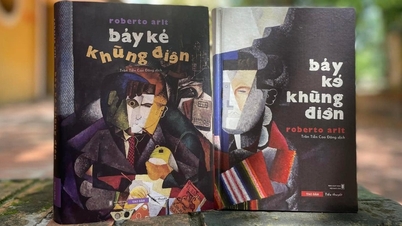

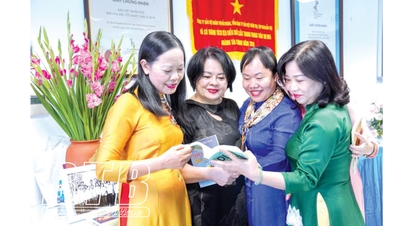

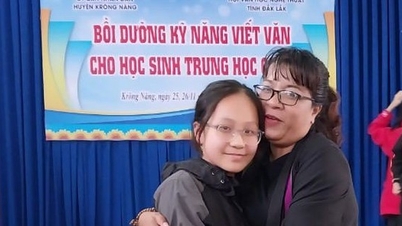





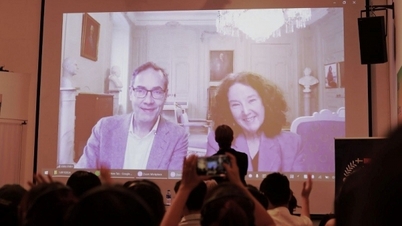

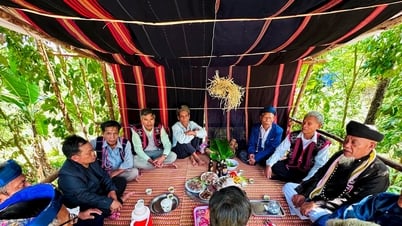


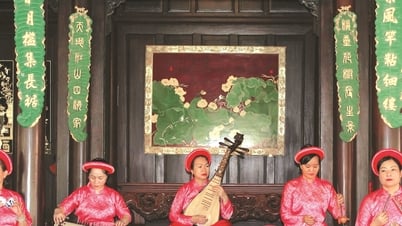






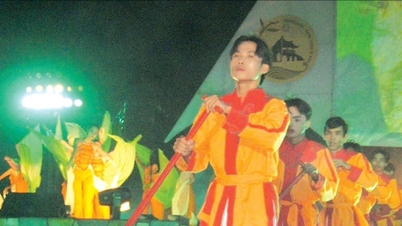
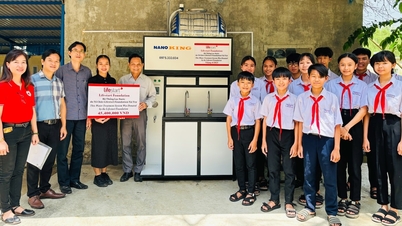

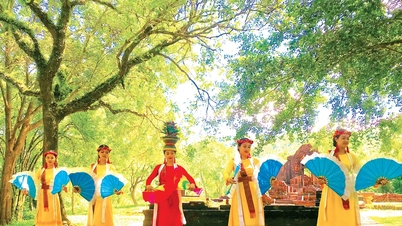
![[Photo] "Lovely" moments on the 30/4 holiday](https://vphoto.vietnam.vn/thumb/1200x675/vietnam/resource/IMAGE/2025/5/1/26d5d698f36b498287397db9e2f9d16c)

![[Photo] Binh Thuan organizes many special festivals on the occasion of April 30 and May 1](https://vphoto.vietnam.vn/thumb/1200x675/vietnam/resource/IMAGE/2025/5/1/5180af1d979642468ef6a3a9755d8d51)








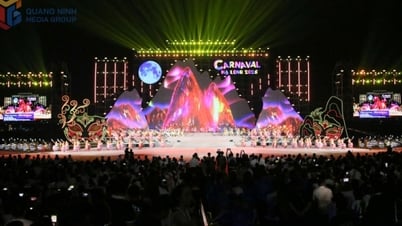

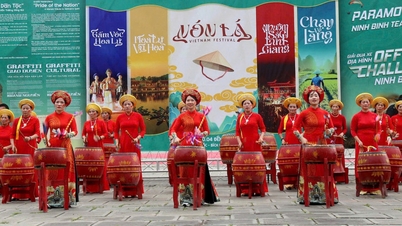

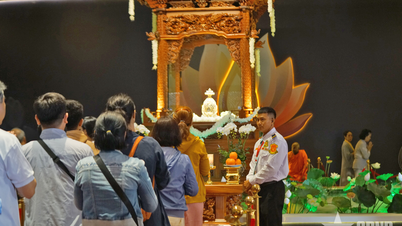

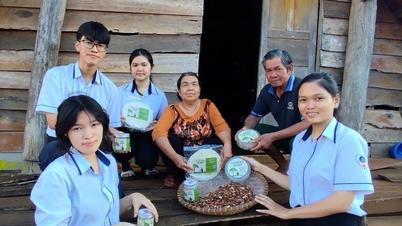



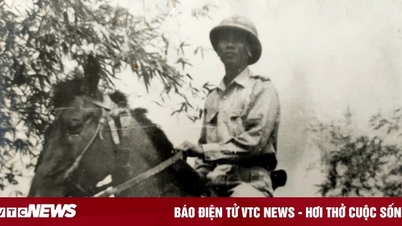

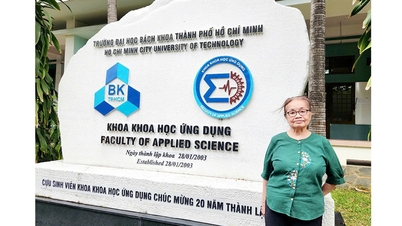
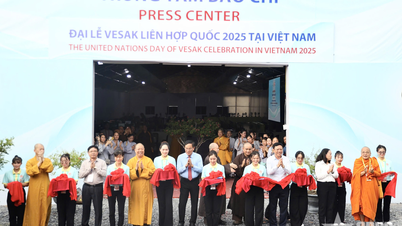










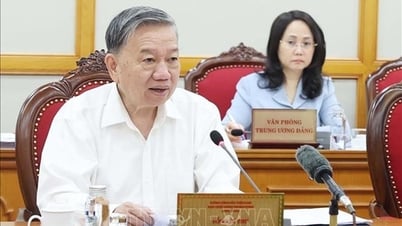

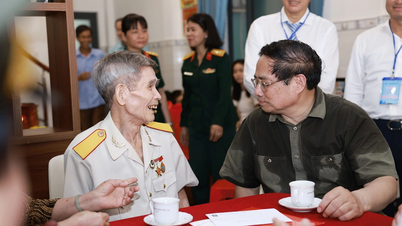



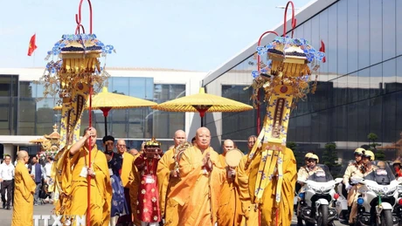










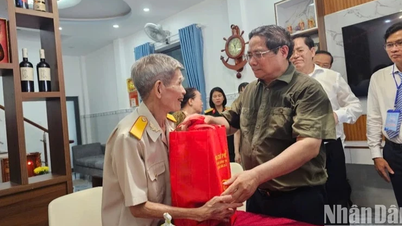
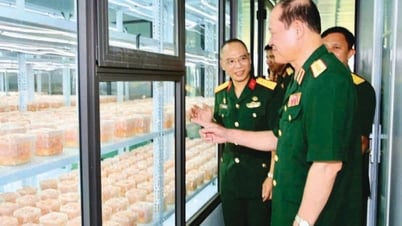

![[Video]. Building OCOP products based on local strengths](https://vphoto.vietnam.vn/thumb/402x226/vietnam/resource/IMAGE/2025/5/3/61677e8b3a364110b271e7b15ed91b3f)



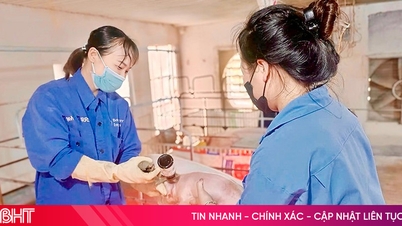

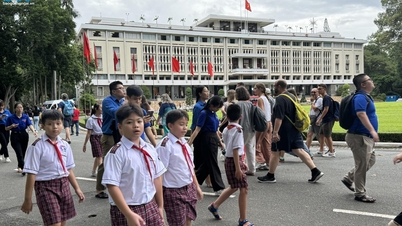







Comment (0)